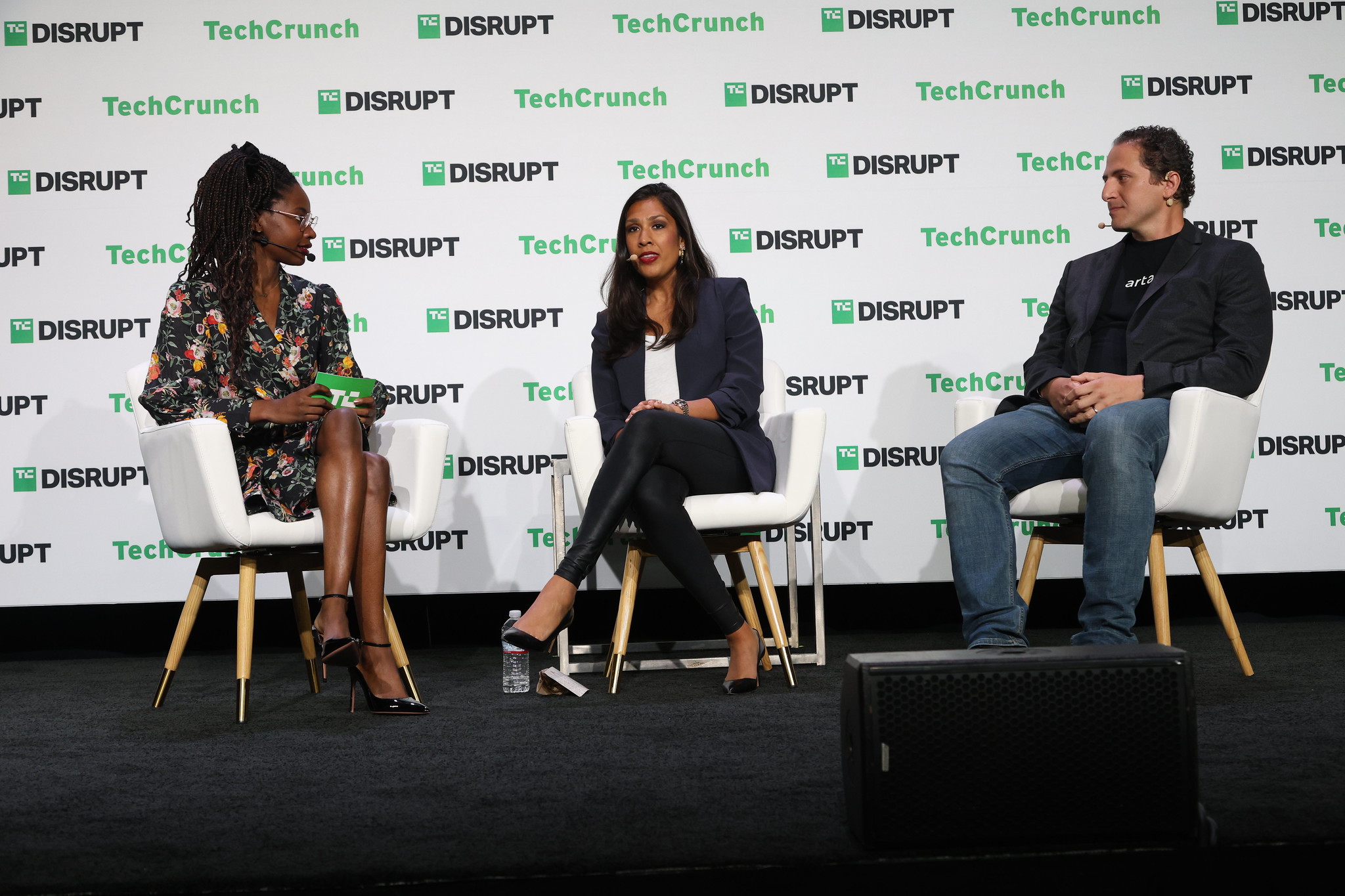Welcome to Startups Weekly. Sign up here to get it in your inbox every Friday.
You know what isn’t a great idea for my energy levels? Enjoying a week of TechCrunch Disrupt and then getting straight on a plane to attend a startup event in Oslo, Norway. I’ve only just gotten over my jet lag, so now it’s time to get back on a plane and do it all over again. Hrrrgh. I must really love startups.
Back in 2016, I spent some time in Oslo as well, and whined about the lack of sophistication in the Norwegian startup ecosystem. I was curious if they had started to figure out how to startup. The answer? Yeah, kinda. The startups themselves are vastly more competent than they were seven years ago, and it’s incredible what seven years of ecosystem development does. There are some great accelerators, good support systems and even a number of investors starting to pop up.
I was moderately horrified and more than a little bit surprised to find a contender to wear the “Let’s wreck this nascent and fragile ecosystem” crown: The investors. Not all of ’em, obviously, but many of the ones I spoke to had an astonishing affinity for short-sighted thinking. Specifically, I saw quite a common recurrence of a mistake I saw frequently in the U.K. ecosystem 15 or so years ago: Angels and pre-seed investors negotiating for way too much equity in the companies. That’s not a good idea — not in an industry where the financial model is powered by the outliers. Put simply: VC works even if most startups give dismal returns, but only if a few startups in the portfolio are able to deliver a home run. It’s a numbers game that falls apart if your deal structure is such that you virtually guarantee that later-stage investors will take one look at the cap table and realize that if they invest, the founders are at risk of losing interest. Greed now leads to poor returns later.
In other words, demanding a 30% stake in a fledgling company is short-sighted, and founders shouldn’t stand for it. Luckily, it’s easily solved by a shrewd investor willing to take a smaller stake in the companies for the same amount of money. That does two things: It is founder-friendlier, and it means the investment becomes vastly more competitive against other investors. The founders just need to know that it’s okay to push back against unreasonable terms, and hopefully the investors will realize that they’re in it for the long haul.
With that screed of discontent out of the way, let’s take a look at what else happened in startup land this week!
Disrupting the disruptors

Yes, yes, TechCrunch Disrupt was last week, but our dastardly crew of keyboard warriors have been hard at work, summarizing and pulling out some of the gems of the sessions you may have missed. Also! There’s a ton of fun video content available, in case you weren’t able to be there in person this year.
Here’s a few of our most-read stories from Disrupt:
Keeping an AI on you: Devin reports that Signal’s Meredith Whittaker believes that AI is fundamentally “a surveillance technology.”
Developers, we still need you: Paul reports on GitHub’s CEO saying that despite AI gains, demand for software developers will still outweigh supply.
Open a ticket: I interviewed the Atlassian CTO (and conspired with him to sneak him back onto the Disrupt stage next year, which I found hilarious, and the Disrupt planning team probably disapproves of), and covered how Atlassian was late moving to the cloud, but on the ball with AI.
Investors? We don’t need no steenkin’ investors: Dominic-Madori reports that Bootstrapping is cool once again.
Is tech bouncing back?

So Talkdesk may just have done its third round of layoffs in less than 14 months, but it seems like the tide is turning: Alex reports numbers that seem to indicate that tech layoffs are all but a thing of the past. Layoffs in January this year hit nearly 90,000, but September so far counts just over 3,000. Does that mean everything is hunky-dory? Well, not quite, but perhaps the deep cuts are done, and everyone is just waiting it out.
Anecdotally, it’s hella hard to raise a VC fund at the moment, but over the past couple of weeks, there’s been no shortage of new fund announcements. Here’s some of the highlights:
Getting the chain back on the tracks: Jacquelyn reports that Blockchain Capital launches two new funds for a total of $580 million.
Fresh dosh for cascadia: Kyle reports that VC firm Fuse closes $250 million fund to invest in Pacific Northwest startups.
Making it rain in Africa: Tage reports that Pan-African contrarian investor P1 Ventures reaches a $25 million first close for its second fund.
In-ai-gural fund: Christine reports that Mythos Ventures scoops up $14 million for its AI fund.
Shopping spree: Connie reports that Industry Ventures just raised $1.7 billion to snap up more stakes — and companies.
2 and whatnow?: For TC+, I took a look at new numbers from Carta, which shows that while the “2 and 20” fee structure is most common, there are definitely a bunch of exceptions.
The ghost in the shell

Another week, another wall of AI coverage from myself and my colleagues, as it continues to be the darling of the startup world, with some stratospheric valuations this week. OpenAI is reportedly raising at a $80 billion+ valuation, and AI-based market intel firm AlphaSense raised at a $2.5 billion price tag. Yowzers!
Devin interviewed Anthropic’s Dario Amodei on the Disrupt stage, and the company’s CEO shared the startling realization that he’s not sure there are any limits to what AI can do. The Equity podcast team leaped into the love fest in this week’s episode entitled “Everyone loves Anthropic,” which makes sense — Amazon is writing an up to $4 billion check into the company.
Other AI stories y’all read a lot this week:
OK, Computer: Paul reports that OpenAI gives ChatGPT a voice for verbal conversations.
AI see what YouTube did there: Sarah reports that YouTube Shorts will get a generative AI feature called Dream Screen.
Strike out: Amanda reports that the writers strike is over. She took a look at how the AI negotiations shook out. This was an interesting story following the conversation I had with a film industry AI CEO, who claimed that “nobody has lost their job because of what we do.”
Top reads on TechCrunch this week
Swipe up and to the right: Sarah reports that Tinder snobs can now pay $499 per month to be matched with the “most-sought after” profiles.
Ca-Splunk: Ron reports that Cisco is planning to acquire Splunk in a $28 billion mega deal, giving shareholders a hefty premium along the way.
Sorry we almost put you out of biz. Can we still be friends?: Kirsten reports that Uber is getting tighter with taxi companies.
Well done, have an upboat: Amanda reports that Reddit will start paying users real money for popular posts.
Looking over your shoulder: Zack reports that, yes, you have to update your Apple devices again, because spyware is bad.






























Comment